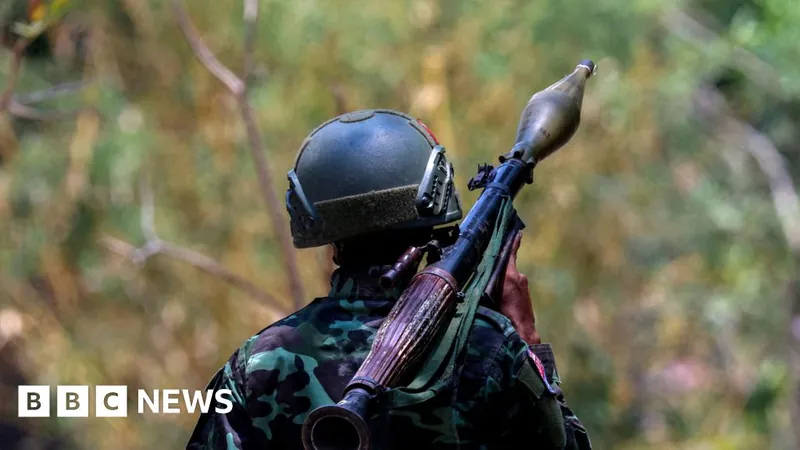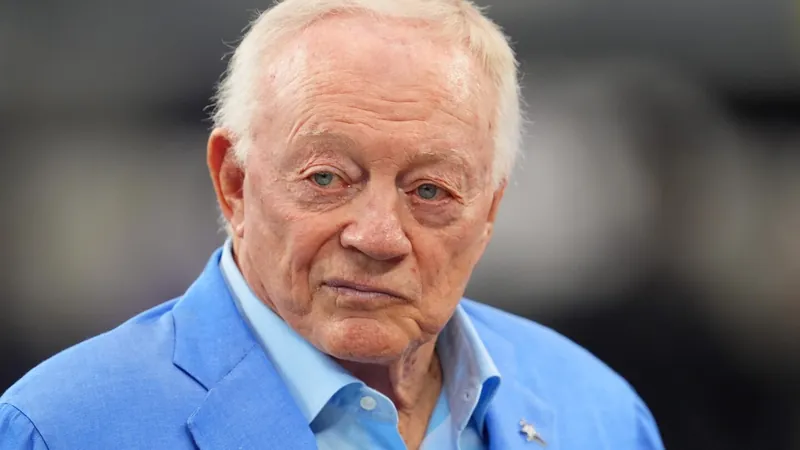
Myanmar Rebel Groups Firmly Reject Junta's Peace Proposal Amid Ongoing Civil Conflict
2024-09-27
Myanmar Rebel Groups Firmly Reject Junta's Peace Proposal Amid Ongoing Civil Conflict
In a significant turn of events, major rebel groups in Myanmar have decisively turned down a peace offer from the military junta, which has been grappling with a series of defeats and a growing insurgency in a civil war that has persisted for over three years. This outreach marks the junta's first attempt at diplomacy since its power grab in February 2021.
The junta's overture comes on the heels of a failed ceasefire agreement brokered by China in Shan State—a region that has seen an escalation in violence. In a statement, the junta called for collaboration with various ethnic armed groups and what they termed 'terrorist insurgent groups' to address political issues through dialogue, urging them to participate in elections scheduled for next year.
However, the National Unity Government (NUG), a shadow government formed by ousted lawmakers and opponents of the military regime, dismissed the junta’s proposals as insincere and stated that the junta lacked the legitimacy to conduct elections. With reports suggesting that the junta controls less than half of Myanmar's territory, their plea appears to be an act of desperation amidst growing resistance.
The last few months have witnessed a resurgence of conflict; in June, an alliance of three ethnic armies launched renewed offensives, capturing key areas along a strategic highway leading to China’s Yunnan Province. This ongoing strife not only undermines Myanmar’s stability but also hampers China’s aspirations to expand its trade routes, leading to tensions in regional diplomacy.
China’s top diplomat, Wang Yi, reportedly cautioned the junta’s leader, Min Aung Hlaing, during a recent visit, emphasizing the need for armed groups to engage in 'party politics and elections' to foster peace and development. Nevertheless, the junta's assertion that the conflict has severely disrupted the nation’s resources and infrastructure has fallen on deaf ears among the rebels.
The Karen National Union (KNU), a key ethnic armed group with a longstanding struggle for autonomy, expressed skepticism towards the junta's promises. KNU spokesman Padoh Saw Taw Nee articulated three critical demands for any meaningful negotiations: a complete withdrawal of military involvement in politics, the acceptance of a federal democratic constitution, and accountability for past atrocities, including war crimes.
Without adherence to these stipulations, the KNU and other groups reaffirmed their commitment to continue exerting pressure on the military through both political maneuvers and military action. Leaders from additional factions, such as the Bamar People's Liberation Army and the Mandalay People’s Defense Forces, echoed these sentiments, with some likening the junta's proposals to misleading offers of peace.
Since the military ousted the democratically-elected government in 2021, Myanmar has spiraled into chaos. The ensuing protests met with violent repression have galvanized various ethnic factions and anti-coup militias, plunging the nation deeper into civil turmoil. According to the United Nations, the conflict has resulted in over 50,000 deaths and displaced more than two million people, with international observers warning that Myanmar is 'sinking into an abyss of human suffering.'
Eyewitness reports have painted a grim picture, detailing the junta’s brutal tactics, including torture methods so horrific that they have shocked the global community. As the situation continues to unfold, the question remains: Will the junta be able to regain control, or is this the beginning of a long and arduous struggle for true democracy in Myanmar?



 Brasil (PT)
Brasil (PT)
 Canada (EN)
Canada (EN)
 Chile (ES)
Chile (ES)
 España (ES)
España (ES)
 France (FR)
France (FR)
 Hong Kong (EN)
Hong Kong (EN)
 Italia (IT)
Italia (IT)
 日本 (JA)
日本 (JA)
 Magyarország (HU)
Magyarország (HU)
 Norge (NO)
Norge (NO)
 Polska (PL)
Polska (PL)
 Schweiz (DE)
Schweiz (DE)
 Singapore (EN)
Singapore (EN)
 Sverige (SV)
Sverige (SV)
 Suomi (FI)
Suomi (FI)
 Türkiye (TR)
Türkiye (TR)